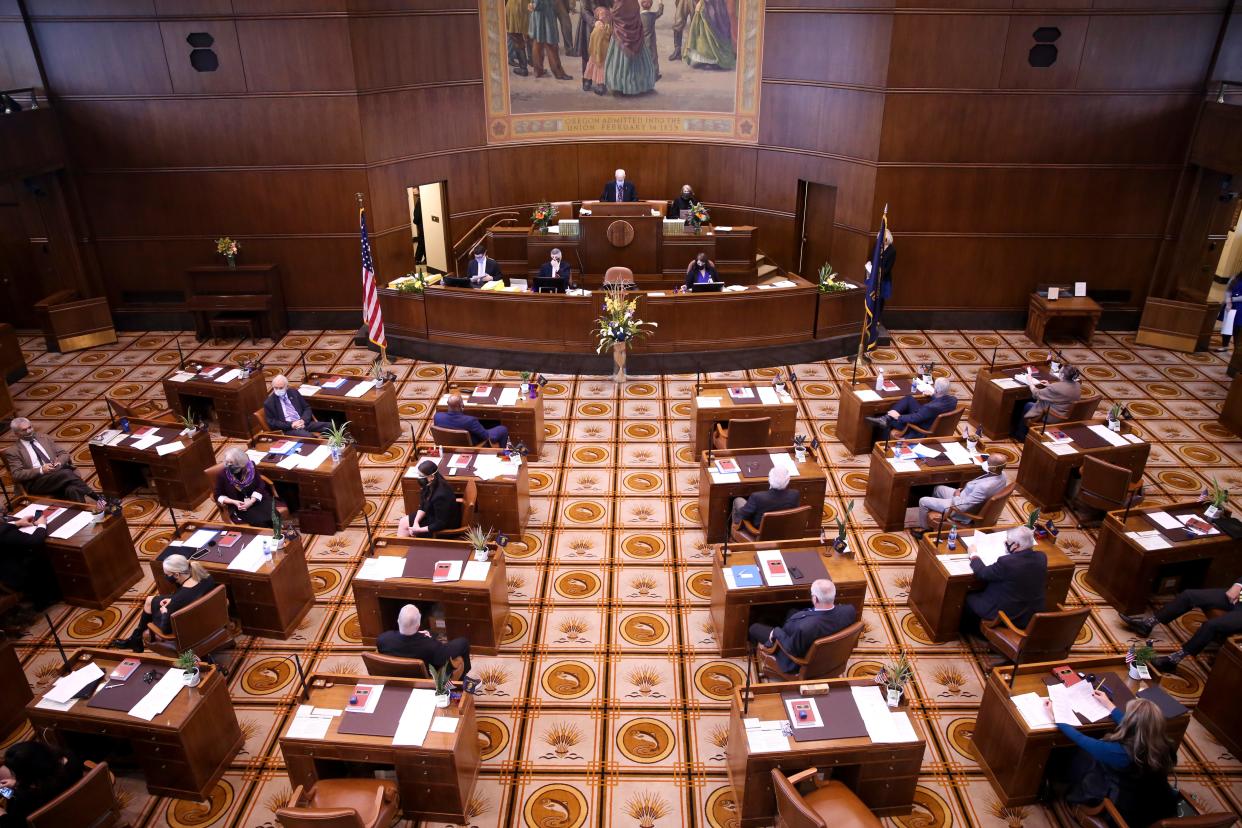How will Oregon voters’ choices play out in the Legislature?

Democrats lost their supermajority. Republicans lost their ability to stall legislation by walking out. And a Democrat held on to the state’s top job, but not without a scare.
The choices voters made in Tuesday’s election will change how laws get made and administered next year in Oregon.
Supermajority lost
While some races still were in play at deadline, it was clear Democrats held on to their majorities in both the House and Senate.
It’s also clear that they lost their supermajority in the Senate, as Republicans flipped at least one net seat.
Oregon requires a three-fifths vote in each chamber, or a supermajority, to pass bills that raise taxes. Democrats now will need at least one Republican to vote with them to pass new taxes.
House Republican Leader Vikki Breese-Iverson, of Prineville, called the results “a huge victory” that will bring balance to the legislature.
“It is clear that Oregonians voted for change this election cycle,” Iverson said.
Voters tell lawmakers to end walkouts
Meanwhile, voters overwhelmingly approved Ballot Measure 113, making it harder for the minority party to block bills it doesn’t like by just leaving the Capitol.
Measure 113 prevents lawmakers from running for reelection if they have 10 or more unexcused absences in a single legislative session. It also prevents those lawmakers from winning a seat in the opposite chamber.
Under Oregon’s quorum requirements, two-thirds of a chamber’s lawmakers must be present in order to conduct business. By denying a quorum, the minority party can stall action on unpopular legislation.
Republicans used the move in 2019 and 2020 to kill Democratic proposals, including bills to regulate greenhouse gas emissions. In 2021, Republicans walked out to protest Gov. Kate Brown’s COVID-19 restrictions.
Back in 2001, House Democrats walked out for five days to prevent Republicans from passing a redistricting plan. They were led by Brown, who was then a state representative.
New governor pledges to heal division
One thing that won’t change is Democratic control in the top job.
Democrats have won every Oregon governor’s race since 1986.

But Republican Tina Kotek’s strong challenge, as well as votes siphoned off by independent candidate Betsy Johnson, mean Kotek’s win wasn’t overwhelming.
That could cause credibility problems, Pacific University political science professor Jim Moore said during the election.
“There’s going to be issues of whether or not that person truly represents Oregon,” Moore said.
Kotek said Thursday that she’ll work to gain the trust of those who didn’t vote for her by welcoming all perspectives to her administration.
“I will start by focusing on those issues of shared concern,” Kotek said.
“If people can see that we’re working on the things we care about together – housing and homelessness, mental health and addiction treatment, good schools – and engaging in authentic dialogue, we’re going to all figure out how to work together to solve problems,” she said.
The 2023 legislative session begins Jan. 17.
∎ For the latest ballot counts: 2022 Oregon Election Results
Tracy Loew covers the environment at the Statesman Journal. Send comments, questions and tips to tloew@statesmanjournal.com, 503-399-6779. Follow her on Twitter at @Tracy_Loew
This article originally appeared on Salem Statesman Journal: Election 2022: How Oregon voters’ choices will play out in Legislature

